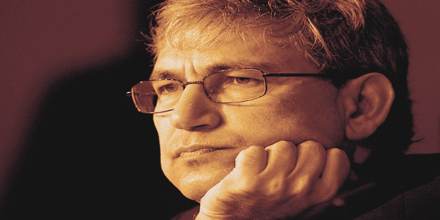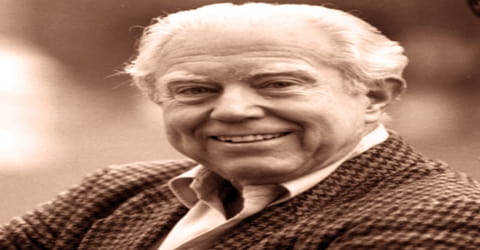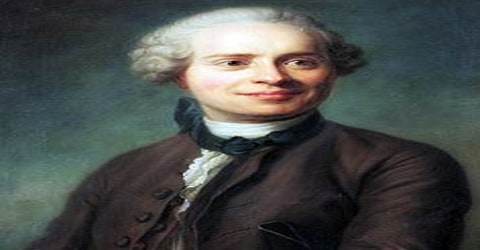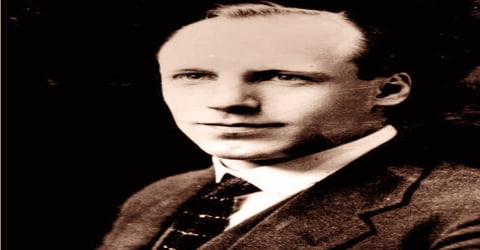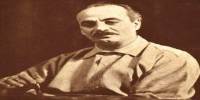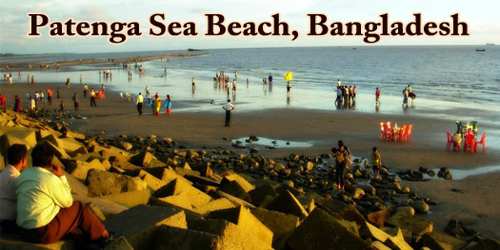Orhan Pamuk – Novelist, Screenwriter, Literature
Full Name: Ferit Orhan Pamuk
Date of Birth: 7 June 1952 (age 64)
Place of Birth: Istanbul, Turkey
Occupation: Novelist, Screenwriter, Professor of Comparative Literature and Writing (Columbia University)
Nationality: Turkish
Period: 1974 – present
Genre: Novel
Subject: East–West dichotomy, literature, painting
Literary movement: Postmodern literature
Spouse: Aylin Türegün (m. 1982, div. 2002)
Relatives: Şevket Pamuk (brother)
Hümeyra Pamuk (half-sister)
Early Life
Ferit Orhan Pamuk was born on June 7, 1952 (age 64), in Istanbul, Turkey. Pamuk is the author of novels including The White Castle, The Black Book, The New Life, My Name Is Red, Snow, The Museum of Innocence, and A Strangeness in My Mind. He is the Robert Yik-Fong Tam Professor in the Humanities at Columbia University, where he teaches writing and comparative literature.
Born in Istanbul, Pamuk is the first Turkish Nobel laureate. He is also the recipient of numerous other literary awards. My Name Is Red won the 2002 Prix du Meilleur Livre Étranger, 2002 Premio Grinzane Cavour and 2003 International Dublin Literary Award.
One of Turkey’s most prominent novelists, his work has sold over thirteen million books in sixty-three languages, making him the country’s best-selling writer.
In 2006, Pamuk returned to the U.S. to take a position as a visiting professor at Columbia, where he was a Fellow with Columbia’s Committee on Global Thought and held an appointment in Columbia’s Middle East and Asian Languages and Cultures department and at its School of the Arts. In the 2007–2008 academic year Pamuk returned to Columbia to jointly teach comparative literature classes with Andreas Huyssen and David Damrosch. Pamuk was also a writer-in-residence at Bard College. In autumn 2009, Pamuk was Harvard’s Charles Eliot Norton Lecturer, delivering a series of lectures entitled “The Naive and Sentimental Novelist”.
The European Writers’ Parliament came about as a result of a joint proposal by Pamuk and José Saramago. In 2005, the ultra-nationalist lawyer Kemal Kerinçsiz sued Pamuk over his statement regarding the Armenian Genocide in the Ottoman Empire. His intention, according to Pamuk himself, had been to highlight issues relating to freedom of speech in the country of his birth. The court initially rejected to hear the case, but in 2011 Pamuk was ordered to pay 6,000 liras in total compensation for having insulted the plaintiffs’ honor.
Educational Career
He was educated at Robert College secondary school in Istanbul and went on to study architecture at the Istanbul Technical University since it was related to his real dream career, painting. He left the architecture school after three years, however, to become a full-time writer, and graduated from the Institute of Journalism at the University of Istanbul in 1976.
Working Career
His first novel, Karanlık ve Işık (Darkness and Light) was a co-winner of the 1979 Milliyet Press Novel Contest (Mehmet Eroğlu was the other winner). This novel was published with the title Cevdet Bey ve Oğulları (Mr. Cevdet and His Sons) in 1982, and won the Orhan Kemal Novel Prize in 1983. It tells the story of three generations of a wealthy Istanbul family living in Nişantaşı, the district of Istanbul where Pamuk grew up.
He started writing regularly in 1974.
Pamuk won a number of critical prizes for his early work, including the 1984 Madarali Novel Prize for his second novel Sessiz Ev (The Silent House) and the 1991 Prix de la Découverte Européenne for the French translation of this novel. His historical novel Beyaz Kale (The White Castle), published in Turkish in 1985, won the 1990 Independent Award for Foreign Fiction and extended his reputation abroad. The New York Times Book Review stated, “A new star has risen in the east—Orhan Pamuk.” He started experimenting with postmodern techniques in his novels, a change from the strict naturalism of his early works.
His novel Kara Kitap (The Black Book) in 1990 was became one of the most controversial and popular readings in Turkish literature, due to its complexity and richness. In 1992, he wrote the screenplay for the movie Gizli Yüz (Secret Face), based on Kara Kitap and directed by a prominent Turkish director, Ömer Kavur. Pamuk’s fifth novel Yeni Hayat (New Life) caused a sensation in Turkey upon its 1994 publication and became the fastest-selling book in Turkish history. By this time, Pamuk had also become a high-profile figure in Turkey, due to his support for Kurdish political rights. In 1995, Pamuk was among a group of authors tried for writing essays that criticized Turkey’s treatment of the Kurds. In 1999, Pamuk published his book of essays Öteki Renkler (Other Colors).
Pamuk’s international reputation continued to increase when he published Benim Adım Kırmızı (My Name is Red) in 1998. The novel blends mystery, romance, and philosophical puzzles in a setting of 16th century Istanbul.
My Name Is Red has been translated into 24 languages and in 2003 won the International Dublin Literary Award, the world’s most lucrative literary prize.
Asked the question “What impact did winning the IMPAC award (currently $127,000) have on your life and your work?”, Pamuk replied:
“Nothing changed in my life since I work all the time. I’ve spent 30 years writing fiction. For the first 10 years, I worried about money and no one asked how much money I made. The second decade I spent money and no one was asking about that. And I’ve spent the last 10 years with everyone expecting to hear how I spend the money, which I will not do.”
Pamuk followed this with the novel Kar, published in 2002 (English translation: Snow, 2004). Set in the border city of Kars, it explores the conflict between Islamism and Westernism in modern Turkey. Snow follows Ka, an expatriate Turkish poet, as he wanders around the snowy Kars and gets caught up in the muddle of aimless Islamists, MPs, headscarf advocates, secularists, and a number of factions who die and kill in the name of highly contradictory ideals. The New York Times listed Snow as one of its Ten Best Books of 2004.
In May 2007, Pamuk was among the jury members at the Cannes Film Festival headed by British director Stephen Frears. He completed his next novel, Masumiyet Müzesi (The Museum of Innocence) in the summer of 2008 – the first novel he published after receiving the 2006 Nobel Prize in Literature.
Pamuk’s tenth novel, The Red-Haired Woman (2016) is the story of a well-digger and his apprentice looking for water on barren land. It is also a novel of ideas in the tradition of the French conte philosophique.
Pamuk published a memoir/travelogue Istanbul—Hatıralar ve Şehir in 2003 (English version, Istanbul—Memories and the City, 2005). Pamuk’s Other Colours – a collection of non-fiction and a story — was published in the UK in September 2007.
In mid-1980s Istanbul, Master Mahmut and his apprentice use ancient methods to dig new wells; this is the tale of their back-breaking struggle, but it is also an exploration—through stories and images—of ideas about fathers and sons, authoritarianism and individuality, state and freedom, reading and seeing. This short, compelling novel is at once a realist text investigating a murder which took place thirty years ago near Istanbul, and a fictional inquiry into the literary foundations of civilizations, comparing two fundamental myths of the West and the East respectively: Sophocles’s Oedipus Rex (a story of patricide) and Ferdowsi’s tale of Rostam and Sohrab (a story of filicide).
Pamuk’s books are characterized by a confusion or loss of identity brought on in part by the conflict between Western and Eastern values. They are often disturbing or unsettling, but include complex plots and characters. His works are also redolent with discussion of and fascination with the creative arts, such as literature and painting. Pamuk’s work often touches on the deep-rooted tensions between East and West and tradition and modernism/secularism.
A group of writers assert that some parts of Pamuk’s works are heavily influenced by works of other writers, and some chapters are almost totally quoted from other books. Pamuk himself said that his works have been inspired by the writings of rebel poet Kazi Nazrul Islam. One of the writers, nationalist popular-historian Murat Bardakçı, accused him of counterfeiting and plagiarism in the Hurriyet, a Turkish newspaper. Another accusation is that Pamuk’s novel The White Castle contains exact paragraphs from Fuad Carim’s Kanuni Devrinde İstanbul (“Istanbul in the Time of the Kanuni”) novel.
However, many attributed such accusations to their ignorance about postmodern literature, and the literary technique of intertextuality which Pamuk almost always uses in his novels in full disclosure.
Notable works
- Cevdet Bey and His Sons
- The White Castle
- The Black Book
- The New Life
- My Name is Red
- Snow
- Istanbul: Memories and the City
- The Museum of Innocence
- A Strangeness in My Mind
In 2005, after Pamuk made a statement regarding the Armenian Genocide and deaths of Kurds, a criminal case was opened against the author based on a complaint filed by ultra-nationalist lawyer Kemal Kerinçsiz. The charges were dropped on 22 January 2006. In Bilecik, his books were burnt in a nationalist rally. Pamuk has subsequently stated his intent was to draw attention to freedom of speech issues. However, Kemal Kerinçsiz, the lawyer who had originally pressed charges against Pamuk, appealed to the Supreme Court of Appeal which ordered the court in Şişli to re-open the case. On March 27, 2011, Pamuk was found guilty and ordered to pay 6,000 liras in total compensation to five people for, among others, having insulted their honor.
The criminal charges against Pamuk resulted from remarks he made during an interview in February 2005 with the Swiss publication Das Magazin, a weekly supplement to a number of Swiss daily newspapers: the Tages-Anzeiger, the Basler Zeitung, the Berner Zeitung and the Solothurner Tagblatt. In the interview, Pamuk stated, “Thirty thousand Kurds have been killed here, and a million Armenians. And almost nobody dares to mention that. So I do.” Turkish historians were divided over the remarks.
Pamuk stated that he was consequently subjected to a hate campaign that forced him to flee the country. He returned later in 2005, however, to face the charges against him. In an interview with BBC News, he said that he wanted to defend freedom of speech, which was Turkey’s only hope for coming to terms with its history: “What happened to the Ottoman Armenians in 1915 was a major thing that was hidden from the Turkish nation; it was a taboo. But we have to be able to talk about the past.”
At the time, Article 301 of the Turkish Penal Code stated: “A person who publicly insults the Republic or Turkish Grand National Assembly, shall be punishable by imprisonment of between six months to three years.” Pamuk was charged with violating this law in the interview. In October, after the prosecution had begun, Pamuk reiterated his views in a speech given during an award ceremony in Germany: “I repeat, I said loud and clear that one million Armenians and 30,000 Kurds were killed in Turkey.”
A few minutes after Pamuk’s trial started on 16 December, the judge found that this approval had not yet been received and suspended the proceedings. In an interview published in the Akşam newspaper the same day, the then Justice Minister Cemil Çiçek said he had not yet received Pamuk’s file but would study it thoroughly once it came.
On 29 December 2005, Turkish state prosecutors dropped the charge that Pamuk insulted Turkey’s armed forces, although the charge of “insulting Turkishness” remained.
The charges against Pamuk caused an international outcry and led to questions in some circles about Turkey’s proposed entry into the European Union. On 30 November, the European Parliament announced that it would send a delegation of five MEPs led by Camiel Eurlings, to observe the trial. EU Enlargement Commissioner Olli Rehn subsequently stated that the Pamuk case would be a “litmus test” of Turkey’s commitment to the EU’s membership criteria.
On 13 December, eight world-renowned authors—José Saramago, Gabriel García Márquez, Günter Grass, Umberto Eco, Carlos Fuentes, Juan Goytisolo, John Updike and Mario Vargas Llosa—issued a joint statement supporting Pamuk and decrying the charges against him as a violation of human rights.
In 2008, in an open online poll, Pamuk was voted as the fourth most intellectual person in the world on the list of Top 100 Public Intellectuals by Prospect Magazine (UK) and Foreign Policy (United States).
On 22 January 2006, Turkey’s Justice Ministry refused to issue an approval of the prosecution, saying that they had no authority to open a case against Pamuk under the new penal code. With the trial in the local court, it was ruled the next day that the case could not continue without Justice Ministry approval. Pamuk’s lawyer, Haluk İnanıcı, subsequently confirmed that charges had been dropped.
EU enlargement commissioner Olli Rehn welcomed the dropping of charges, saying “This is obviously good news for Mr. Pamuk, but it’s also good news for freedom of expression in Turkey”. However, some EU representatives expressed disappointment that the justice ministry had rejected the prosecution on a technicality rather than on principle. An Ankara-based EU diplomat reportedly said, “It is good the case has apparently been dropped, but the justice ministry never took a clear position or gave any sign of trying to defend Pamuk”.
In 2006, the magazine Time listed Pamuk in the cover article “TIME 100: The People Who Shape Our World”, in the category “Heroes & Pioneers”, for speaking up.
In April 2006, on the BBC’s HARDtalk program, Pamuk stated that his remarks regarding the Armenian massacres were meant to draw attention to freedom of expression issues in Turkey rather than to the massacres themselves.
On 19–20 December 2006, a symposium on Orhan Pamuk and His Work was held at Sabancı University, Istanbul. Pamuk himself gave the closing address.
In January 2008, 13 ultranationalists, including Kemal Kerinçsiz, were arrested by Turkish authorities for participating in a Turkish nationalist underground organisation, named Ergenekon, allegedly conspiring to assassinate political figures, including several Christian missionaries and Armenian intellectual Hrant Dink.
Personal Life
Ferit Orhan Pamuk was born on June 7, 1952 (age 64), in Istanbul, Turkey. He grew up in a wealthy yet declining upper-class family; an experience he describes in passing in his novels The Black Book and Cevdet Bey and His Sons, as well as more thoroughly in his personal memoir Istanbul.
From ages 22 to 30, Pamuk lived with his mother, writing his first novel and attempting to find a publisher. He describes himself as a Cultural Muslim who associates the historical and cultural identification with the religion while not believing in a personal connection to God.
Pamuk’s elder brother Şevket Pamuk, who sometimes appears as a fictional character in Orhan Pamuk’s work, is a professor of economics, internationally recognised for his work in history of economics of the Ottoman Empire, working at Bogazici University in Istanbul. Pamuk also has a younger half-sister Hümeyra Pamuk, who is a journalist.
On 1 March 1982, Pamuk married Aylin Türegün, a historian. From 1985 to 1988, while his wife was a graduate student at Columbia University, Pamuk assumed the position of visiting scholar there, using the time to conduct research and write his novel The Black Book in the university’s Butler Library. This period also included a visiting fellowship at the University of Iowa. Pamuk returned to Istanbul, a city to which he is strongly attached. He and his wife had a daughter named Rüya (born 1991), whose name means “dream” in Turkish. In 2001, they were divorced.
Orhan publicly acknowledged his relationship with Kiran Desai, Booker prize winner of Indian origin. In January 2011, Turkish-Armenian artist Karolin Fişekçi told Hürriyet Daily News that Pamuk had a two-and-a-half-year relationship with her during the same time (2010–12), a statement expressly denied by Pamuk.
In an interview with Simon Schama published in the Financial Times on Aug 16 2013, Schama mentions Pamuk’s girlfriend Asli. Aslı Akyavaş is thought to be his current girlfriend.
Honours
On 12 October 2006, the Swedish Academy announced that he had been awarded the 2006 Nobel Prize in Literature, confounding pundits and oddsmakers who had concluded that Syrian poet Ali Ahmad Said, known as Adunis, was most likely to receive that year’s award. There were concerns within Turkey that the decision to award the Nobel Prize to Pamuk was politically motivated. In its citation, the Academy said: “In the quest for the melancholic soul of his native city, Pamuk has discovered new symbols for the clash and interlacing of cultures.”
Other awards and honours
- 1979 Milliyet Press Novel Contest Award (Turkey) for his novel Karanlık ve Işık (co-winner)
- 1983 Orhan Kemal Novel Prize (Turkey) for his novel Cevdet Bey ve Oğulları
- 1984 Madarali Novel Prize (Turkey) for his novel Sessiz Ev
- 1990 Independent Foreign Fiction Prize (United Kingdom) for his novel Beyaz Kale
- 1991 Prix de la Découverte Européenne (France) for the French edition of Sessiz Ev : La Maison de Silence
- 1991 Antalya Golden Orange Film Festival (Turkey) Best Original Screenplay Gizli Yüz
- 1995 Prix France Culture (France) for his novel Kara Kitap: Le Livre Noir
- 2002 Prix du Meilleur Livre Etranger (France) for his novel My Name Is Red: Mon Nom est Rouge
- 2002 Premio Grinzane Cavour (Italy) for his novel My Name Is Red
- 2003 International Dublin Literary Award (Ireland) for his novel My Name Is Red (awarded jointly with translator Erdağ M. Göknar)
- 2005 Peace Prize of the German Book Trade (Germany)
- 2005 Prix Médicis étranger (France) for his novel Snow: La Neige
- 2006 Nobel Prize in Literature (Sweden)
- 2006 Washington University’s Distinguished Humanist Award (United States)
- 2006 Ordre des Arts et des Lettres Commandeur ribbon.svg Ordre des Arts et des Lettres (France)
- 2008 Ovidius Prize (Romania)
- 2010 Norman Mailer Prize, Lifetime Achievement (USA)
- 2012 Sonning Prize (Denmark)
- 2012 Legion Honneur Officier ribbon.svg Légion d’honneur Officier (France)
- 2014 The Mary Lynn Kotz Award (USA) for his book “The Innocence of Objects”
- 2014 Tabernakul Prize (Macedonia)
- 2014 European Museum of the Year Award (Estonia)
- 2014 Helena Vaz da Silva European Award for Public Awareness on Cultural Heritage (Portugal)
- 2015 Erdal Öz Prize (Turkey), for his novel A Strangeness in My Mind
- 2015 Aydın Doğan Foundation Award (Turkey), for his novel A Strangeness in My Mind
- 2016 The Yasnaya Polyana Literary Award (“Foreign Literature” category, Russia) for his novel A Strangeness In My Mind
Doctorates, honoris causa
- 2007 Free University of Berlin, Department of Philosophy and Humanities – 4 May 2007
- 2007 Tilburg University – 15 November 2007
- 2007 Boğaziçi University, Department of Turkish Language and Literature – 14 May 2007
- 2007 Georgetown University’s Honorary Degree: Doctor of Humane Letters honoris causa
- 2007 Complutense University of Madrid
- 2008 University of Florence
- 2008 American University of Beirut
- 2009 University of Rouen
- 2010 University of Tirana
- 2010 Yale University
- 2011 Sofia University
Honours
- 2005 Honorary Member of American Academy of Arts and Letters (USA)
- 2008 Honorary Member of Social Sciences of Chinese Academy (China)
- 2008 Honorary Member of American Academy of Arts and Sciences (USA)
In 2005, Pamuk received the €25,000 Peace Prize of the German Book Trade for his literary work, in which “Europe and Islamic Turkey find a place for one another.” The award presentation was held at Paul’s Church, Frankfurt.
